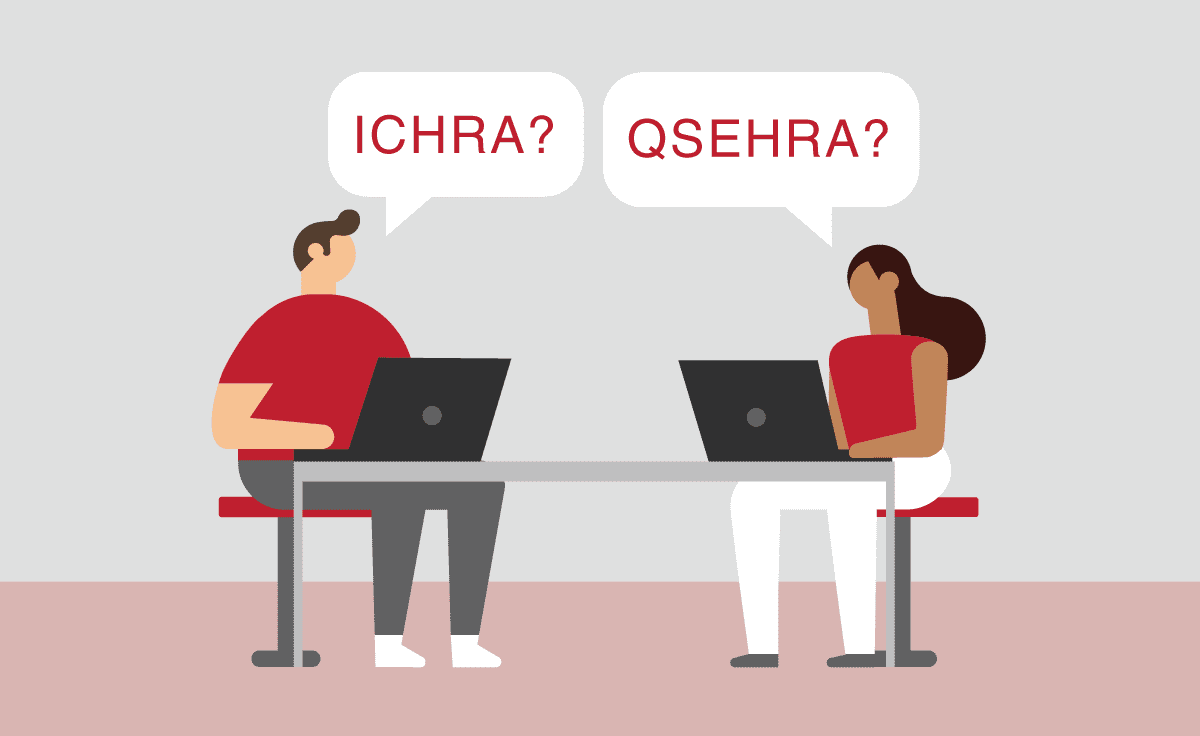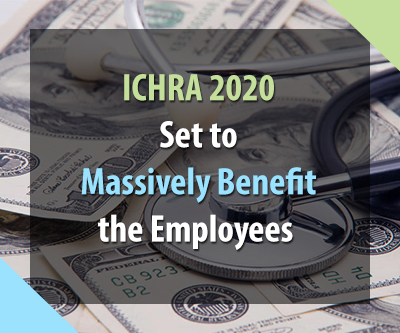What are HRA accounts?
Health Reimbursement Arrangements (HRAs) are a type of plan where employers reimburse employees for medical and insurance coverage expenses tax-free.
There are 6 different HRAs available to cover the wide variance of business ownership, number of employees and circumstances. Each HRA has it’s unique-approved guidelines to fit the right situation. This article specifically addresses the ICHRA, newly available in 2020, and how it can benefit single-member LLCs to create significant opportunities for tax savings without the high plan management costs.
Generally, sole proprietors can deduct health insurance premiums paid but are unable to deduct out-of-pocket medical expenses. By creating a written ICHRA, previously non-deductible medical expenses can now be reimbursed by the employer tax-free, saving both payroll and income taxes.
1. The ICHRA is an insurance and medical expense reimbursement plan. It is not an account and expenses must be incurred before they are eligible for reimbursement.
2. Benefits reimbursed by the employer are tax-deductible by businesses and income tax-free for employees, saving the employer payroll tax on the benefits reimbursed to the employees.
3. The ICHRA provides excellent tax savings potential for the individual LLC owner with few employees.
Understanding the ICHRA
The ICHRA have no plan contribution limits, allowing you to create a plan for maximum tax savings. With ICHRAs, contributions are made solely by the employer and unused funds can rollover year to year. HRA benefits are not portable and employees lose the benefit when they leave the employer. Employees purchase the health care products and services they want then submit receipts for reimbursement. The business reimburses the employee, free of payroll and income tax. Reimbursements are deductible by the business and received income tax-free by the employee.
The Individual HRA plan is ideal for sole proprietor or micro business with few employees. However, to be eligible for the ICHRA, the employer must have at least one W-2 employee. As a sole proprietor, the best strategy is to hire your spouse or child to satisfy this requirement and create the benefit, maximizing the tax savings.
An employer can offer as little or as much benefit as they want. However, if you offer an Individual HRA, you must offer the same plan terms to all employees within a class. Therefore, how you create the plan, setting up the procedures to comply with regulations and which HRA plan to utilize, is extremely important to allow you to maximize your benefits and maintain the validity of the plan under the rules of IRC Section 105. You can create different benefits for different classes of employees, but you must maintain consistency of benefits for each class and not discriminate to keep the plan compliant.
HRA rules requires employees participating in the ICHRA to have individual health insurance coverage. Employees that are covered by a spouse group health insurance plan cannot participate in the ICHRA. Another HRA plan option would likely be more suitable in this circumstance to maintain the same tax benefits and coordinate with the spousal coverage.
If your business has employees that are purchasing individual health insurance (either through the exchange or not), the ICHRA could be an ideal choice. If you have employees that qualify for the premium tax credit under the exchange, the ICHRA will allow the employee to choose which benefit would be more ideal.
What expenses can be reimbursed under the ICHRA?
Qualified medical expenses are defined by the IRS and include out-of-pocket deductibles, copays, medical, dental, vision, psychiatric, substance abuse, and prescription drug expenses. You can even be reimbursed for qualified long-term care contracts and services.
The employer may exclude certain medical expenses, even though they are qualified under IRS rules. The employer lists the reimbursable medical expenses that are allowed in the ICHRA plan documents, which provides greater flexibility for the employer creating the plan.
Which plan is right for your business?
Businesses need to evaluate several factors when weighing which plan is best for them, including the business entity type, number of employees and the long-term outlook of the business. The plan should fit into the short- and long-term -plan to maintain ease of administration. There are 6 different HRA plan options that could fit to provide you great tax savings. Therefore, looking at the specific circumstances of your business to optimize your opportunity will be essential.
It is essential to comply with each federal requirement to keep the plan eligible for expenses to remain tax free and the plan to be eligible. Have questions or need to determine which plan is most suitable for you? Call Jennifer at (262) 923-8100 ext. 710 to schedule your appointment to help find the right plan to maximize your savings.


